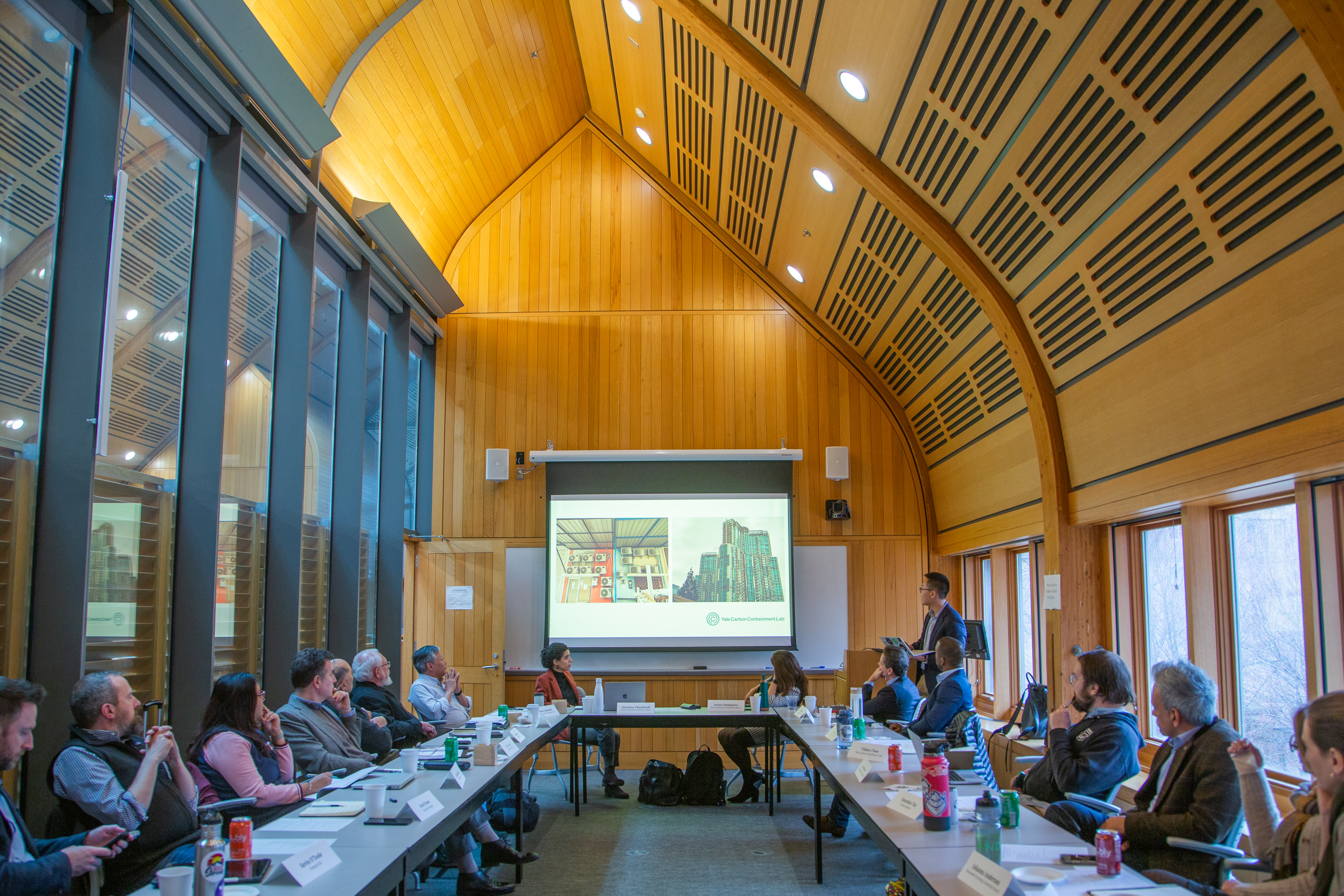Workshop Report
In its previous organizational home at the Yale School of the Environment, the Carbon Containment Lab hosted a group of two dozen legal, policy, financial, and technical experts on March 14th, 2023 for a workshop entitled “Maximizing the Climate Benefits of the HFC Transition.” The objective of the workshop, held in Kroon Hall, was to develop an ambitious policy agenda to guide advocacy efforts and investment opportunities created by the HFC transition, with a view toward maximizing its climate and environmental justice benefits.

These takeaway points capture key opportunities for action:
Lifecycle refrigerant management is a key pillar of decarbonization: Refrigerant usage best practices can greatly enhance the energy efficiency and climate-friendliness of our infrastructure. Decarbonization measures like heat pumps will be even more effective if harmonized with proper refrigerant management, such as leak reduction and adoption of low Global Warming Potential alternatives. To maximize environmental justice benefits, end-users should be rewarded for making climate-friendly choices.
The government and private sector can work together: The Inflation Reduction Act allocates funding for the development of next-generation cooling technologies and improving systems for refrigerant recovery, reuse, and disposal. The government can also lead efforts to improve sustainable equipment procurement, robust reporting of refrigerant emissions, and tracking of refrigerant recoveries. These efforts will support the private sector in developing new technologies and scaling refrigerant recovery and reclamation.
There is a need for global action: Cooling demand and refrigerant consumption are growing rapidly in the developing world. The U.S. can support responsible refrigerant management abroad through leading by example and thoughtfully deploying carbon finance. Developing countries may also be able to “leap frog” high Global Warming Potential refrigerants and transition more rapidly to climate-friendly cooling.
What’s good for the environment is also good for business: Recent legislation like the AIM Act creates markets for new cooling products and technologies, such as reclaimed refrigerants, climate-friendly refrigerants, and solid-state cooling technology. Reducing refrigerant leakage and retiring old equipment have massive climate benefits and also help companies' bottom lines.
The Montreal Protocol can do even more: The Montreal Protocol has already delivered unprecedented climate benefits through phasing down the production of ozone-depleting substances and HFCs. It can be expanded to cover other harmful gases like PFCs and N2O. Lessons learned from the Protocol, particularly around coalition building and phasedowns, can inform strategies to mitigate other short-lived climate pollutants such as methane and black carbon.
.jpg)

.jpg)
.jpg)



